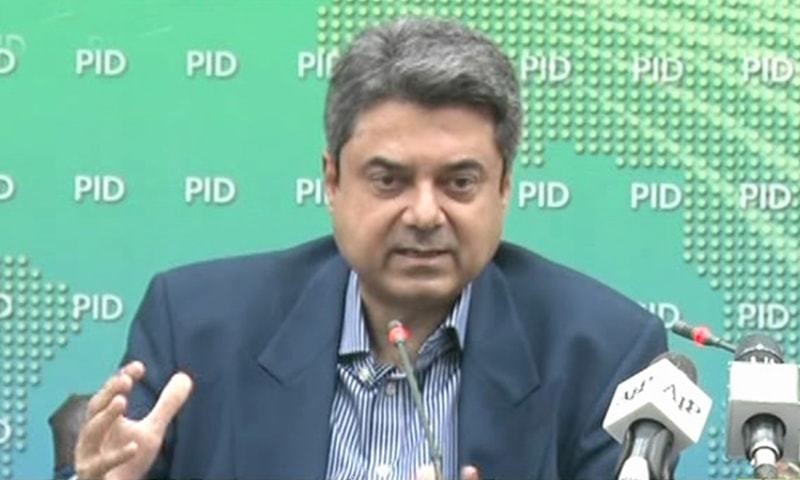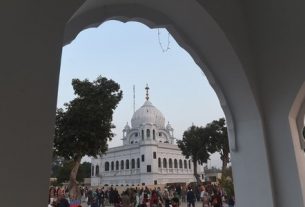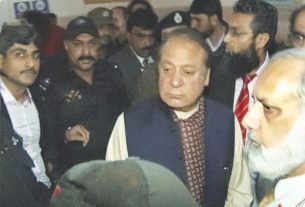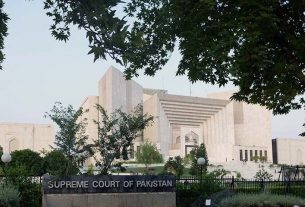The government has decided not to file an appeal against the Lahore High Court’s (LHC) interim order to allow former prime minister Nawaz Sharif to travel abroad for weeks, Federal Law Minister Farogh Naseem announced on Tuesday.
Addressing a press conference alongside government’s chief spokesperson Firdous Ashiq Awan after a federal cabinet meeting, the minister said the LHC will give its final decision on the PML-N petition in January after taking the cabinet sub-committee’s reasoning into consideration.
“If a precedent is created by the LHC decision which we feel should be appealed, then the federal government will definitely file an appeal [against it],” he said.
“The chance for us to appeal is intact,” he added, emphasising that the LHC verdict is an interim order while the decision on merit will be announced in January.
Naseem said the government lawyers had not consented to the interim judgement, and added that the government will press for the submission of indemnity bonds by the Sharif family when the hearing resumes in January.
According to the minister, the Supreme Court does not entertain an appeal against a high court’s interim order “99 per cent” of the time. He stressed that the government does not want to file an appeal where there is no legal space because Prime Minister Imran Khan does not have a “personal agenda” against the opposition.
Naseem said the LHC had in its order maintained the government’s condition of one-time permission for Nawaz’s travel for a period of four weeks, thus the government’s original order remains intact “90-95pc”.
“Additionally, if they [Sharifs] don’t return Shehbaz Sharif could be held in contempt [of the court],” he added.
He said the cabinet had in its previous meeting unanimously decided to grant a one-time permission for Nawaz to travel abroad in view of his “extreme” health condition, subject to the submission of indemnity bonds, while the decision to not appeal the LHC order was also unanimously taken by the cabinet.
He reiterated that the demand for indemnity bonds was not equivalent to submitting bail bonds.
Naseem said he and other officials had tried to convince the lawyers for PML-N president Shehbaz Sharif, who had filed an application seeking the removal of Nawaz’s name from the Exit Control List, to consent to submitting indemnity bonds or some other undertaking. Although they refused to submit the indemnity bonds, the Sharif family later submitted an undertaking to the Lahore High Court, the minister noted.
“[The Sharif family] should not have done politics on the issue,” Naseem said, adding that the government had viewed the matter from a humanitarian angle. He also cited various legal precedents to justify the government’s original demand for indemnity bonds.
Nawaz left for London for his medical treatment in an air ambulance on Tuesday morning.
LHC order
After much deliberation and meetings, the government had agreed to allow Nawaz to travel abroad, with the condition that indemnity bonds amounting to Rs7-7.5 billion be furnished. The PML-N had rejected the condition and had taken the matter to the LHC, which — in a blow to the Centre — ordered the federal government to remove his name from the ECL without any conditions. The verdict was issued after Nawaz signed a court-approved undertaking, saying that he would return to the country within four weeks.
Shehbaz too signed an undertaking, which stated he would “ensure return” of his brother “within four weeks or on certification by doctors that he has regained his health and is fit to return back to Pakistan”. Nawaz was allowed to leave the country for a period of four weeks, extendable on the basis of medical reports.
Nawaz, who has been diagnosed with an immune system disorder, was recommended by doctors to go abroad as his condition continued to deteriorate despite treatment. He was rushed to Services hospital from the Kot Lakhpat jail — where he was serving a prison sentence granted by an accountability court that found him guilty of corruption in the Al Azizia — after Dr Khan raised an alarm over the former prime minister’s deteriorated health.
Nawaz was granted bail by the Islamabad High Court on humanitarian grounds, in the Al Azizia case earlier this month. He also obtained bail in the ongoing Chaudhry Sugar Mills case, in which he is a suspect, from the LHC.



